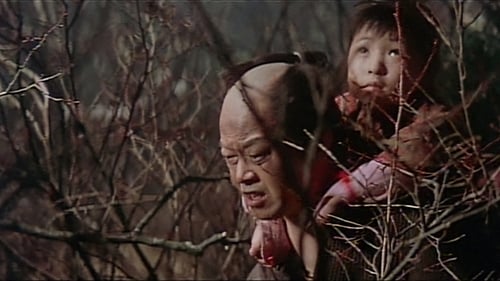
Higuruma
In feudal Japan, gangsters chase a young girl who might testify against their boss. When the gangsters murder the girl's grandfather on sacred ground, the door is opened for the Yokai Monsters to step in.

Second movie in the yoidore hakase serie
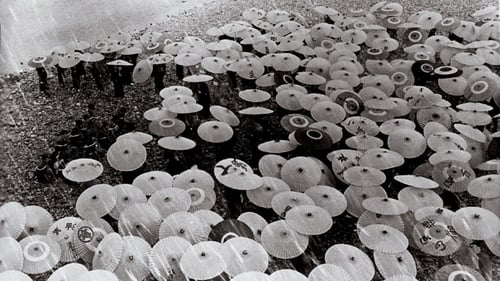
Detective Yoshikichi
Assassination begins with the events of 1853 when "four black ships" anchored at Edo Bay, sparking civil unrest and the major political manoeuvring that saw the end of the Tokugawa Shogunate. At a time when assassination had become a disturbing political tool, Shinoda's film follows Hachiro Kiyokawa, an ambitious, masterless samurai whose allegiances drift dangerously between the Shogunate and the Emperor.

A resolute young man searching for his mother, whom he was separated from as a child, defies a family who mistreat the poor and homeless.

раб
Yoso is truly a lost classic, set in the Nara Era (710-794), from Kinugasa Teinosuke the same writer/director who gave us the recognized classic Gate of Hell (Jigokumon, 1952) & the milestone silent surrealist masterpiece A Page of Madness (Kurutta Ippeji, 1926).

The warlords overrun the country while the farmers are starving, and forced to become soldiers to keep the wolf from the door. The farmers are recruited in groups of fifteen. In Yaju's village, there are only twelve men, so they press Oto, who looks more like a boy than a girl, to join, disguised as a man.
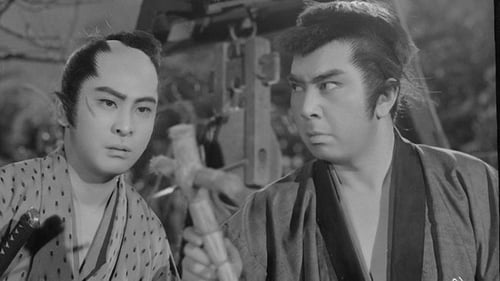
Nishina Saburouta is powerful but corrupted priest. One night, an old samurai who couldn't bear him any more, attempts to kill him, but without success. Saburouta is rescued by his niece, Keisuke at the last moment. Keisuke is a a good-for-nothing. Since that event, he always turns to his uncle when he needs money. Recently Keisuke feels his uncle isn't as generous as he used to be, he suspects that Saburouta has found out the illicit relation between Keisuke and his uncle's young mistress, Ohasu.

The womanising master of a run-down dojo hires an unemployed samurai to make himself look good instead of learning the skills himself. He lives to regret this laziness when he falls in love with the daughter of a higher class samurai and is informed on their wedding night that he must defeat her before their marriage can be consumated....
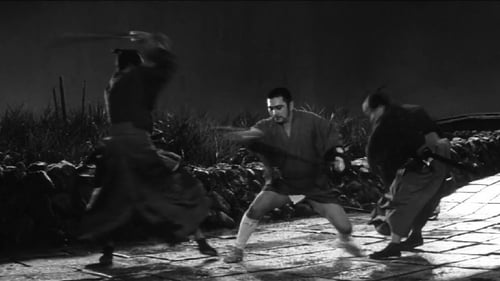
Yahei
Returning to the village where a year before he had killed Hirate, a much-admired opponent, Zatoichi encounters another swordsman and former rival in love.
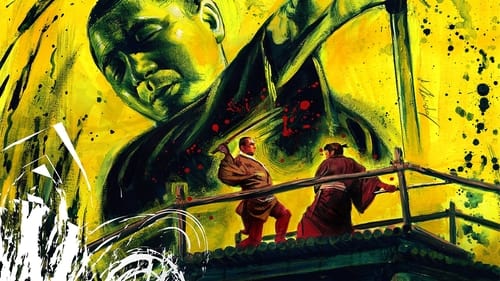
Yahei
The adventures of a blind, gambling masseur and master swordsman. Zatoichi targets a yakuza-controlled village, because war with a neighbouring town's smaller gang is brewing.

A country boss gives up his way of life because of his daughter's marriage.

The university professor Ozeki Hitoshi (Ryu Chishu) is regarded as an eccentric by people in his surroundings. When his daughter Tokiko is asked to marry a colleague, she and her mother are overjoyed, but Hitoshi is not satisfied with the situation.

Manao Horiuchi movie

Second "Pfc. Story" sequel and the ninth and final sequel to "Story of Second Class Private", the only one in both series not directed by Seiichi Fukuda.
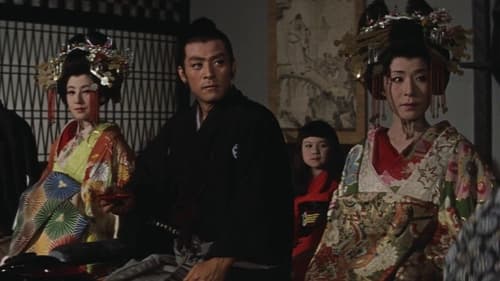
Onogawa
The Dai-bosatsu toge trilogy is based on Kaizan Nakazatos unfinished long series of novels (41 books, written from 1913 to 1941). Set in the last period of the Tokugawa Shogunate, Daibosatsu Toge tells the story of Tsuke Ryunosuke, a nihilistic swordmaster who doesn't hesitate to kill anyone, bad or good.

In the autumn of 1945, Petty Officer Tadashi Yamaji is among the numerous war crimes suspects facing death on the gallows for maltreatment of Allied women and children interned in camp Kampili. Kampili is located some ten kilometers outside Macassar on the island of Celebes. Eighteen-hundred Allied women and children were interned for the duration of the war. Yamaji's iron rule for camp administration is : No violence; hands off internees; He also endeavors to establish self-administration by internees while aiming at a self-supporting camp economy within six months. His ingenuity gains the camp numerous pigs to enrich their diet, and sewing machines with to make fatigue uniforms for the military. The internees are grateful for what little aid he can give them. As the tides of war changes, Allied planes bomb the camp in error. But the surrender of Japan changes everything, and the internees join forces to save their former camp commander from the gallows.

오시마 나기사의 세 번째 장편영화. 오사카 빈민가에서 살아가는 하층민과 그곳을 거점 삼아 싸움을 일삼는 삼류 깡패들의 생활상이 등장한다. 이제 막 깡패 집단에 들어간 순수한 주인공은 거친 세상 속에서 살아남으려 애쓰는 동안 도덕적 방황을 겪는다. 사회를 겨냥한 직접적 발언은 없으나 당시 일본 사회의 음울함을 반영한 것으로 인정받는 작품.

First "Pfc. Story" sequel and eighth overall sequel to "Story of Second Class Private".

Tatsuo Osone movie

Captain Kikumura
First installment of the "Pfc. Story" series of military-themed comedies from Shochiku, and seventh overall sequel to "Story of Second Class Private".

Yagyu Jubei proves his skills in this early adventure film.

Captain Toriyama
Sixth sequel to "Story of Second Class Private".

Based on the novel by Toyoko Yamazaki.

Squad leader Nanba
Fourth sequel to "Story of Second Class Private".
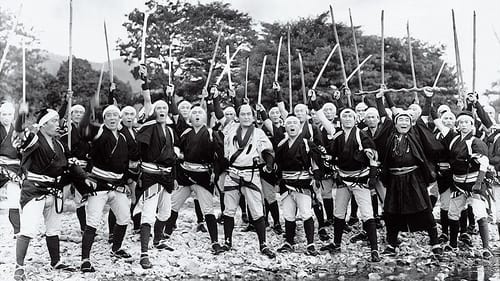
Daigoro
Ishimatsu is strong in fights, but weak in relationships with women and enjoys great popularity among them, and we see how an exciting historical drama about love, enmity and friendship is played out.

Third sequel to "Story of Second Class Private".

Second sequel to "Story of Second Class Private".

First sequel to "Story of Second Class Private".

First film in a series of military-themed comedies from Shochiku.

Yoriki
Christ in Bronze is a 1955 black-and-white Japanese film directed by Minoru Shibuya. It was entered into the 1956 Cannes Film Festival.
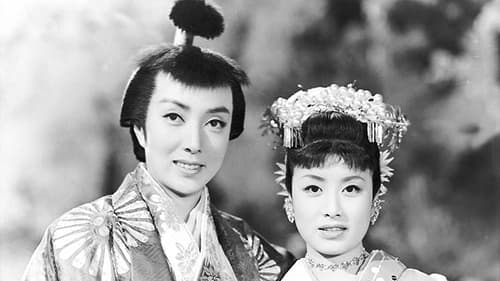
Tarobei
This is a paradise of dream and illusion, a country of Raccoon Dogs. The Bat Tribe lives in a neighboring country took a young prince of Raccoon Dogs as a hostage, and try to take a Buddhist saint from the temple by force.

A samurai detective film.

родственник Окамэ
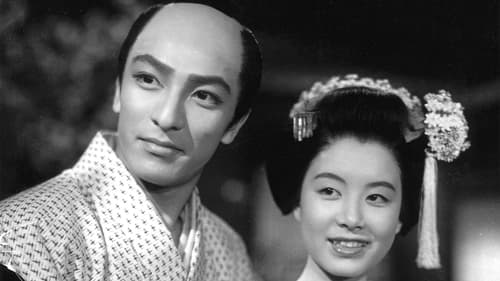
Komiyama Jizaemon
During the ultra-violent era of the downfall of the Tokugawa Shogunate one man rose above the rest with his ideas of how to overthrow the corrupt government and end the bloodshed between the Choshu and Satsuma clans which would ultimately lead to the alliance of these 2 clans and restoration of the emperor to full power. Based on the play that made Sawada Shojiro famous, this is the story of Tsukigata Hanpeita, a forward looking samurai from Choshu, who along with Katsura Kogoro and Sakamoto Ryoma of Tosa worked to bring their dream of a new era in Japan.

A gallant swordsman takes on the forces of evil with the help of his trusty friends.

Having completed the first year at his new medical practice, a doctor plans to relax on his day off. However, it is not to be: on this hectic day a man just back from the war front visits the doctor with a medical emergency, followed by a woman who claims to have been molested. Then a yakuza arrives to ask the doctor to cut his finger off...

Gensaburo Funaki and Oyuki were childhood friends, but Gensaburo misunderstood that Oyuki was hesitant to get married because he had to feed his father and younger brother. I left the town.
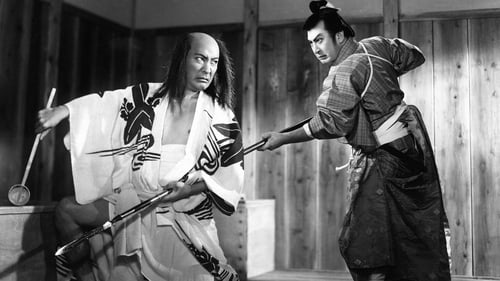
Tsunaemon Watanabe
During the 17th Century roving bands of hatamoto were causing trouble in the new capital city of Edo and constantly fought with the townspeople at every turn. The leader of these ruthless samruai was Mizuno Jirozaemon, who despite his high rank was in deep financial distress, thus leading to a tragedy that shook the very streets of the city.Opposing him was Banzui-in Chobei, the ‘Protector of the Weak’ who was willing to put his life on the line to save the 808 districts of Edo from the 80,000 hatamoto whose violent behavior threatened to destroy the fabric of society. Starring Bando Tsumasaburo, the first great star of the silver screen along with mega-star Ichikawa Utaemon, this is a story not to be missed. Torn from the pages of history, this true story has been told many times, but never as powerfully as this!
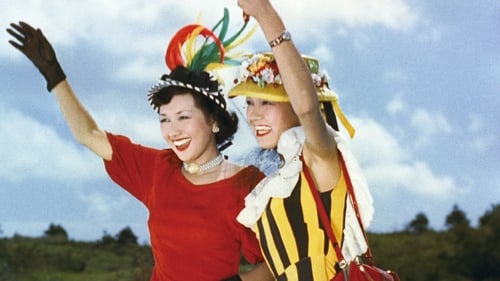
Village youth
소와 말들이 뛰노는 평화롭고 한적한 산골 마을. 어릴 적 가출을 한 뒤 도쿄에서 스트립퍼로 일하고 있는 카르멘이란 예명의 오킨이 자칭 금의환향을 하겠다는 편지를 보내왔다. 오킨은 자신의 직업을 '정말로' 예술이라고 믿고 있는, 머리가 약간 모자라는 여자다. 오킨의 언니는 그 편지를 들고 가서 아버지께 보이며 오킨의 금의환향(?)을 허락해 줄 것을 부탁하지만 아버지의 반응은 냉담하다. 결국 남편과 상의를 한 끝에, '일본은 문화국가'임을, 그래서 응당 예술가는 어떤 일이 있어도 대우해 주어야 한다고 굳게 믿고 있는 교장 선생에게 아버지를 설득시켜 줄 것을 부탁한다. 우여곡절 끝에 귀향을 허락 받은 오킨. 산골 마을에서는 꿈도 꾸지 못할 파격적인 모습으로 금의환향을 하게 되고, 그런 오킨과 그 동료 마야의 모습은 순박한 산골 마을 사람에게 일대 파문을 일으키며 갖가지 해프닝이 벌이지게 된다. 한편, 돈이 되는 일이라면 물불을 가리지 않는 탐욕스러운 사업가인 마르쥬는 마을 사람들을 상대로 한 오킨의 스트립쇼를 계획하게 되는데...

Yahei Moriyama
A period mystery in which an unconventional priest exposes the truth behind the bizarre death of a maid in the shogun's harem. Kinuyo Tanaka stylishly plays a constantly intoxicated geisha in this all-star entertainment film.

Yasuda
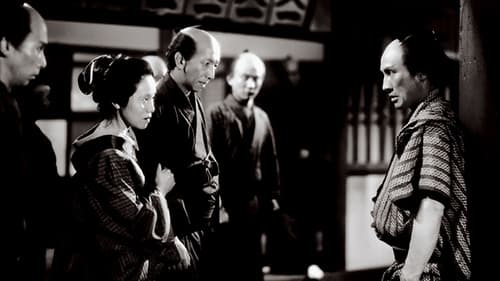
Tatsugoro
간교한 나오스케는 감옥에 있던 사람들과 함께 탈옥을 공모하였으나, 그 사실을 간수에게 몰래 알려서 탈옥을 실패하게끔 만들고 자신은 감형을 받아 출옥을 하게 된다. 고헤이는 연모하던 술집 작부인 오이와를 술집으로부터 꺼내 주기 위해 돈을 마련하려고 도둑질을 하다가 감옥에 갖혔지만, 탈옥 공모에 가담하지 않았기 때문에 다행히 목숨을 건질 수 있었다.한편, 오이와는 비록 술집 작부이긴 했으나 행실이 곱고 용모 또한 수려하여 술집을 그만두고 벼슬을 얻지 못한 낭인 무사인 이에몬과 혼인을 하여 살고 있었다. 어느 날 이에몬은 에도에서 가장 큰 쌀 도매상의 외동딸인 오우메가 치한들에게 봉변을 당하는 장면을 목격하고 그녀를 구출해 주게 되는데, 남자다운 그 모습에 오우메는 한눈에 반하고 만다.감옥에서 출옥을 한 나오스케가 마침 그 장면을 목격하게 되었고, 한탕 잡을 만한 거리를 찾고 있던 그는 이에몬을 오우메와 맺어 주기 위해 오이와와 이혼시킬 계략을 세운다. 이에몬은 출세를 위한 절호의 기회를 놓칠 수 없다는 생각에 나오스케의 계략에 동참하게 되지만, 워낙 우유부단한 성격의 이에몬은 차마 오이와를 버릴 수가 없어 번민한다. 보다 못한 나오스케는 결국 오이와를 죽이는 수밖에 없다는 생각을 굳히고 그녀를 독살해 버린다. 그러나, 출옥한 이후에도 오이와를 잊지 못해 그 주변을 맴돌던 고헤이가 그 장면을 목격하게 되어, 그도 역시 참혹한 죽음을 맞고 만다.한편, 오이와의 쌍둥이 동생인 오소데는 언니가 행방불명된 데 대해 의혹을 품고 진상을 파헤치고자 하는데...

The tale of a feudal swordsman who cynically takes no responsibility for anything, relegating it to others, and then taking the credit.
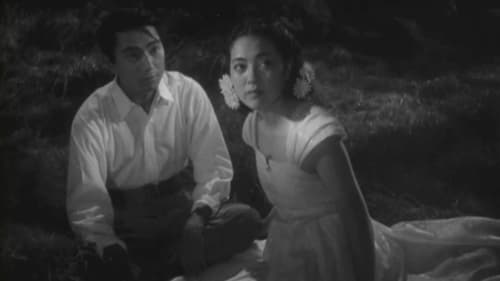
Yoshizô
A young man who is unable to tell his childhood friend how he feels makes a pledge with her to reveal all of their secrets during the upcoming festival.

Waiting woman

Japanese war movie.

Japanese Warmovie

Japanese propaganda film about the Normanton Incident.

Japanese war movie.
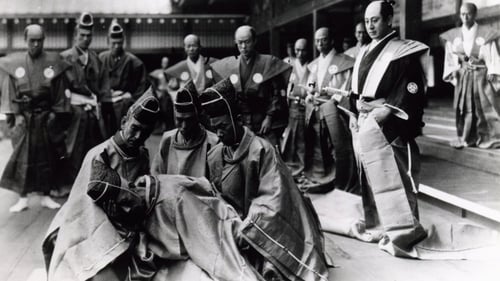
Yosôemon Kajikawa
18세기 초, 막부정치가 안정되고, 산업이 발달해 도시가 성장하던 겐로쿠 시대. 쇼군의 명령에 따라 에도에 머물던 아코의 영주 아사노가 고관 기라와 대립해 싸움을 벌이고 만다. 평화의 시대, 성에서는 칼을 뽑지 못하게 한 법도를 어긴 아사노에게 할복하라는 명령이 떨어진다. 오오이시를 비롯한 아사노의 부하들은 주군을 잃고 절망에 빠진다.

dir: Teinosuke Kinugasa

Two cowardly palanquin carriers know the culprit of a murder but are too scared to report it to the police. In the mean time, an innocent man is arrested as the murderer and chaos ensues. Pre-war jidaigeki film.

Kadokura
An onnagata (female impersonator) of a Kabuki troupe avenges his parents' deaths. Remade in 1963 as Yukinojô Henge.

A mournful masterpiece by Kinugasa Teinosuke

prince Edokko
This 1932 adaptation is the earliest sound version of the ever-popular and much-filmed Chushingura story of the loyal 47 retainers who avenged their feudal lord after he was obliged to commit hara-kiri due to the machinations of a villainous courtier. As the first sound version of the classic narrative, the film was something of an event, and employed a stellar cast, who give a roster of memorable performances. Director Teinosuke Kinugasa was primarily a specialist in jidai-geki (period films), such as the internationally celebrated Gate of Hell (Jigokumon, 1953), and although he is now most famous as the maker of the avant-garde silent films A Page of Madness (Kurutta ichipeji, 1926) and Crossroads (Jujiro, 1928), Chushingura is in fact more typical of his output than those experimental works. The film ranked third in that year’s Kinema Junpo critics’ poll, and Joseph Anderson and Donald Richie noted that 'not only the sound but the quick cutting was admired by many critics.






























